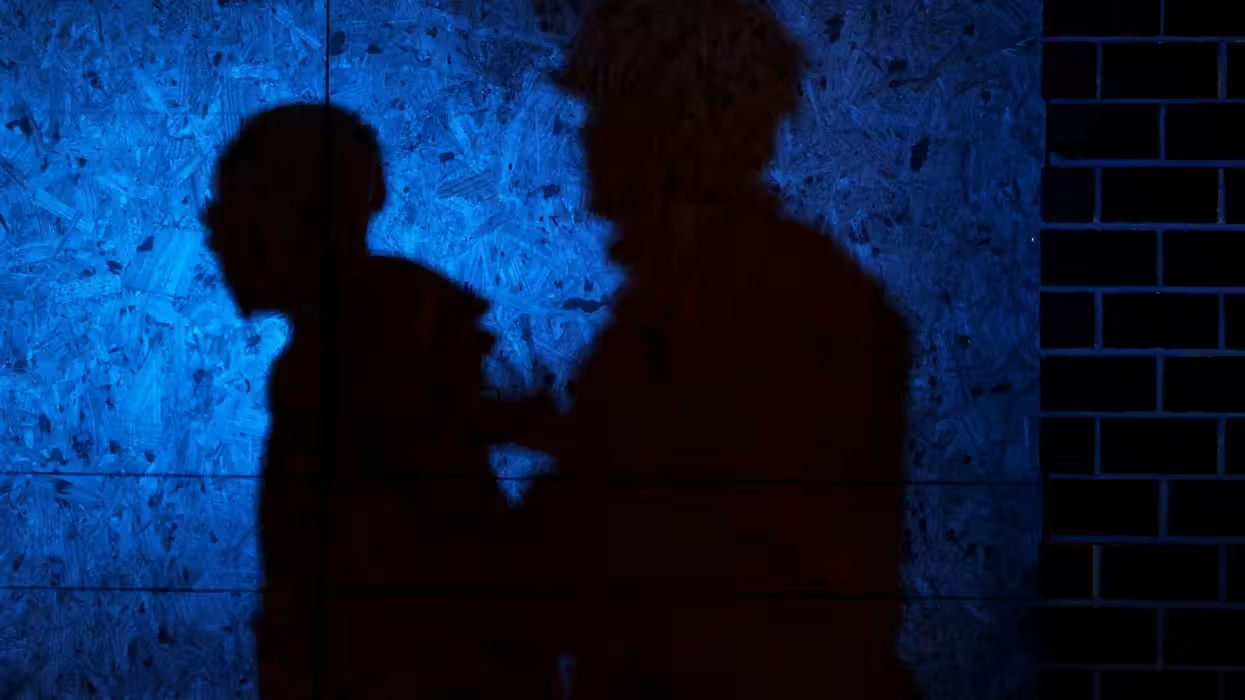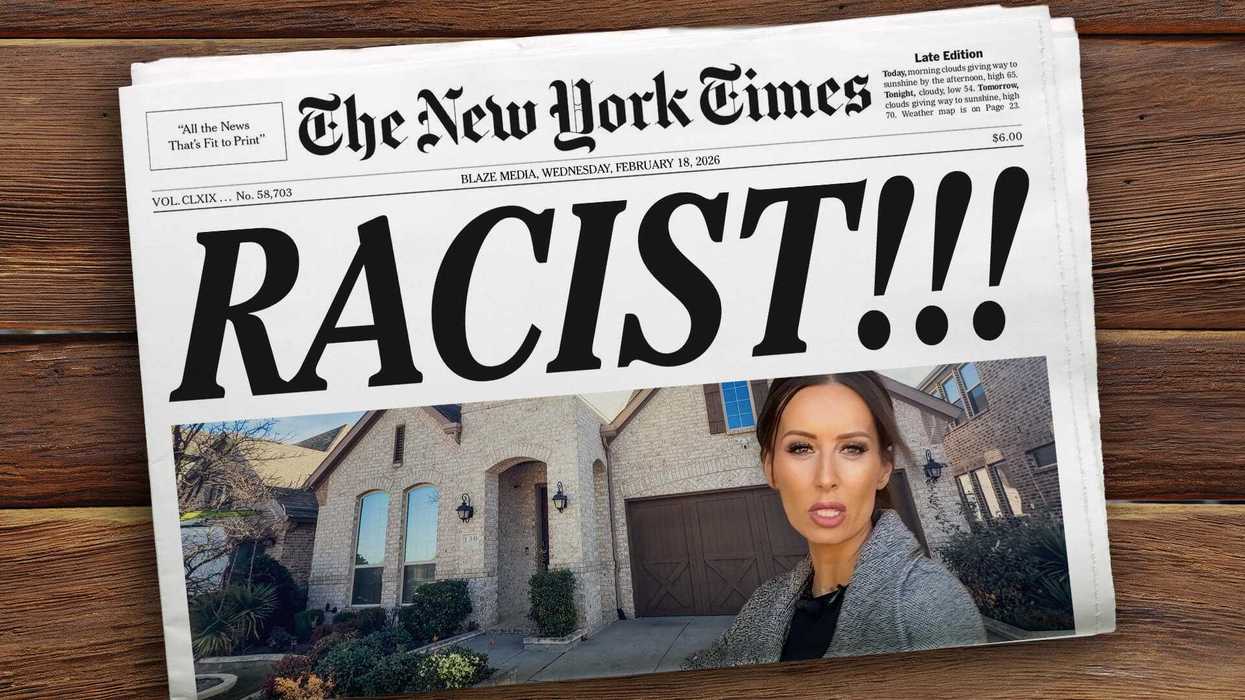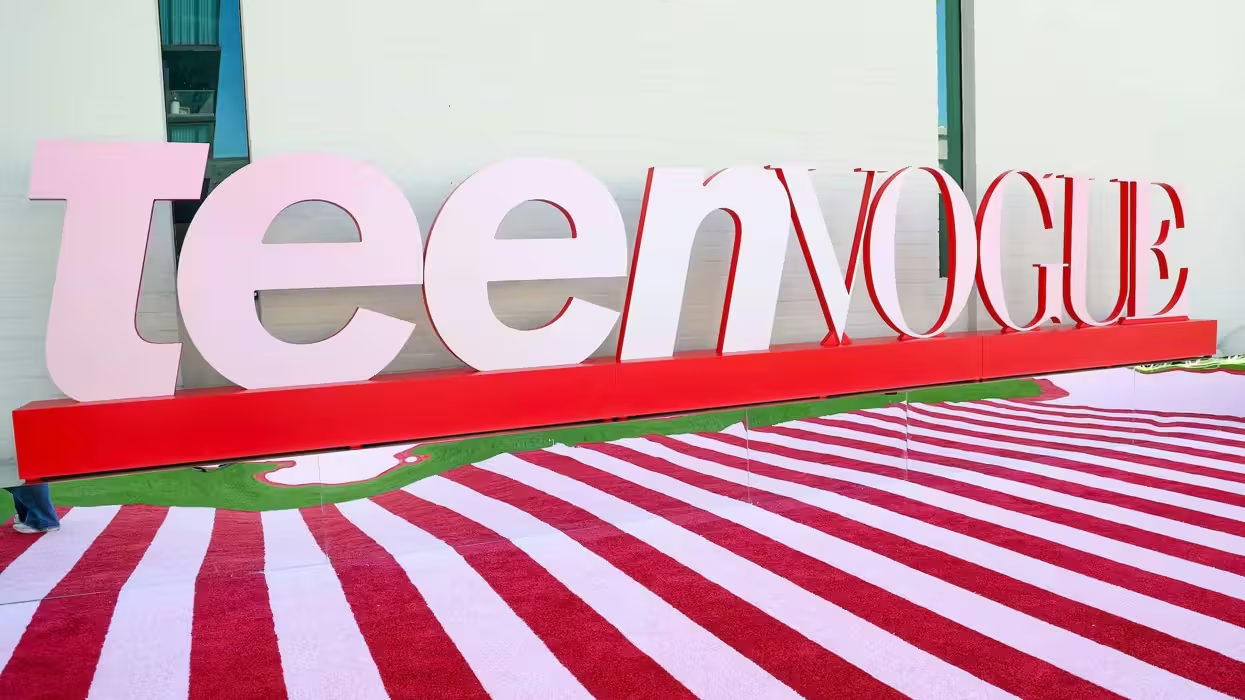
© 2026 Blaze Media LLC. All rights reserved.
Jada Williams Returns to Glenn Beck Program to Discuss Her Struggle With Freedom of Speech, Alveda King Responds
March 08, 2012
Read her essay in its entirety.
After The Blaze reported on the poignant story of Jada Williams and her essay on "English Expressions from the Narrative of the Life of Frederick Douglass," many of our readers expressed interest in reading her compete essay. With the author's permission, we've reprinted it below.
In keeping with the spirit of the evening, on Thursday's broadcast of The Glenn Beck Program, Glenn dedicated a profound segment to discussing freedom of speech as it relates to education. Jada, along with her family and Ayesha Kreutz, President of the Frederick Douglass Foundation we among those weighing in during the segment.
Glenn introduced the night by reminding viewers that Jada was targeted for her essay, which criticized the failures of the public school system.
“They sent in social workers and the President of the Union to intimidate this family -- even a thirteen year old."
"You’re not opening debate you’re putting a target on your back if you dare disobey."
Watch below as Glenn, Jada and the panel delve into the story that captured America's attention. Jada's essay follows below the video.
Later on in the segment, Dr. Alveda King, niece of Dr. Martin Luther King, Jr., joined Jada and Glenn to speak about what it means to "stand up."
King started by telling Jada how sorry she was that educators who were charged with protecting her, turned on her. "Now I have to stand with you and your parents," King said. "I know your character hasn't been harmed."
"If this could happen in the 21st century in the classroom this is not good."
She also thanked Glenn for bringing Jada's story to light in the media.
"It starts with one, then it becomes a community," King said poignantly.
The ever-poised King engaged Glenn and the panel about instances from her own life. At one point, Glenn went asked King -- who was never one conform to what others thought she should say or do -- what it was like being the black sheep of her family. She opened up, recalling how she had strayed and become liberal in her early years of adulthood and was even pro-choice for a time. It wasn't until the words of her grandfather and uncle set in, that she renewed her "relationship with the lord in the 1980s."
She said that while her family may not always agree with her views, they know, through her willingness to go against the grain, that she speaks the truth.
As the conversation veered toward those fateful, grim days in the late 1960s, Glenn asked King if she was ever afraid as a child, watching her uncle and father. She said that "perfect love casts out all fear."
One of the most profound moments of King's segment came when she told Glenn, Jada, and the panel how her uncle always knew that he would be hurt one day because of his role in the Civil Rights movement. "But he was so dedicated, so prepared and ready," King said of her uncle. She said that while she realizes her uncle is not Jesus, his role and sacrifice in life was much like Jesus'. Jesus would have said, "I am going to the cross, and don't tell me not to go to the cross, that's why I am here." King reminded that her uncle, and father, knew why they were put on this earth and never questioned "laying down their lives" as Christians.
Glenn felt that there could be no one better than Alveda King to speak to Jada from the heart on what it means to "stand up":
Watch below as the discussion of freedom of speech and education continues:
Jada Williams December 30, 2012
English Expressions from the Narrative of the Life of Frederick Douglass
During my Christmas break I had the opportunity to read the Narrative of the Life of Frederick Douglass. The Rochester City School District supplied us with this novel to read and expected me to expound on what I read and how it made me feel, as I myself being an African American and an eighth grader in the Rochester City learning institute.
Before, I began to read this novel, I had heard about it prior from a few older people that have read it and raved about it. I myself experienced it differently; I had some mixed emotions towards it. When reading the novel my first impression was “what am I reading”? The content of the narrative was far more advanced for me. I found myself getting a dictionary/thesaurus to look up words I have never seen before in my life. On the other hand I was appreciative because it helped to expand my vocabulary. So with that I am grateful. After, being able to cross-reference the words unknown to me I was able to read through the novel again with a clearer understanding.
That’s when it all sank in.
So then I began to feel very angry to read such material that was brutal and degrading to African Americans. Furthermore, I myself began to question,” as to why the Rochester City School District would supply us with a novel that would evoke such emotions?” I, also began to question,” what were the District motives and the intent behind us reading about history that doesn’t compliment the white race and their behaviors at all; what would come about of this?” Would they even consider my thoughts and my opinions?
So I’m very curious to see what the turn out will be. The one passage I would like to focus on was written on page 20, where it quoted Mr. Auld’s (a master mentioned in the narrative) opinions towards black and education, and I quote: “Very soon after I went to live with Mr. and Mrs. Auld, she very kindly commenced to teach me the A, B, C. After I learned this, she assisted me in learning to spell words of three or four letters. Just at this point of my progress, Mr. Auld found out what was going on, and at once forbade Mrs. Auld to instruct me further, telling her, among other things, that it was unlawful, as well as unsafe, to teach a slave to read. To use his own words, further, he said, if you give a nigger an inch, he will take an ell. A nigger should know nothing but to obey his master-to do as he is told to do. Learning will spoil the best nigger in the world. Now,” said he, “if you teach that nigger (speaking of myself) how to read, there will be no keeping him. It will forever unfit him to be a slave. He would at once become unmanageable, and of no value to his master. As to himself, it could do him no good, but a great deal of harm. It would make him discontented and unhappy.”
(Skipping down) I now understood what had been to me a most perplexing difficulty- to wit, the white man’s power to enslave the black man. It was a grand achievement, and I prized it highly. From that moment, I understood the pathway from slavery to freedom. My thoughts: This type of thinking is somewhat still prevalent in our society today. Most white teachers that I have come into contact with, over the last several years of my life, have failed to instruct us even today. The teachers are not as vocal about us not learning how it has been described in this narrative; but their actions speaks volumes. When I myself sit in crowded classrooms and no real concrete instruction is taking place. It makes that saying “history does repeat itself” all the more true. For white teachers to be able to be in a position of power to dictate what I can, cannot and will learn, only desiring that I may get bored because of the inconsistency and the mis-management of the classroom and remain illiterate and ignorant; or better yet distracted because some children decide to misbehave because they don’t understand, and ashamed to ask for help.
The teacher recognizing all of these things and still not addressing the matter at hand, so much time has been wasted- then the bell rings and on to the next class, same drama different teacher, different class. When do we get off of this roller coaster? When the white teachers began to pass out pamphlets and packets, they expect us the black students to read the directions, complete it, and hand it in for a grade. The reality of this is that most of my peers cannot read and or comprehend the material that has been provided. So, I feel like not much has changed, just different people, different era, the same old discrimination still resides in the hearts of the white man.
In closing, my suggestions to my peers, people of color, and my generation to try achieve what has been established by the African Americans and Abolitionists that paved the way for us to receive what’s rightfully yours. Blood, sweat, and tears have been shed for us to obtain any goals, which we may set for ourselves. Never being afraid to excel and achieve, because our ancestors have been bound for so, so, so, so, so long. We are free to learn, and my advice to my peers, people of color, and my generation- start making these white teachers accountable for instructing you. They chose this profession, they brag about their credentials; they brag about their tenure, so if you have so much experience, then find a more productive way to teach the so-called “unteachable”.
They contain this document that states they have all this knowledge to teach, so show me what you know, teach me your ways. What merit is there, if you contain all this knowledge and not willing to share because of the color of my skin. To all of our surprise, we all have the same warm, red blood running through our veins, regardless of what race I may be. If you don’t believe me, then poke me and poke a white man and you will see. To my peers, people of color, and my generation, start asking questions, start doing the research, get involved.
A grand price was paid in order for us to be where we are today; but in my mind we should be a lot further, so again I encourage the white teachers to instruct and I encourage my people to not just be a student, but become a learner.
Want to leave a tip?
We answer to you. Help keep our content free of advertisers and big tech censorship by leaving a tip today.
Want to join the conversation?
Already a subscriber?
more stories
Sign up for the Blaze newsletter
By signing up, you agree to our Privacy Policy and Terms of Use, and agree to receive content that may sometimes include advertisements. You may opt out at any time.
Related Content
© 2026 Blaze Media LLC. All rights reserved.
Get the stories that matter most delivered directly to your inbox.
By signing up, you agree to our Privacy Policy and Terms of Use, and agree to receive content that may sometimes include advertisements. You may opt out at any time.







